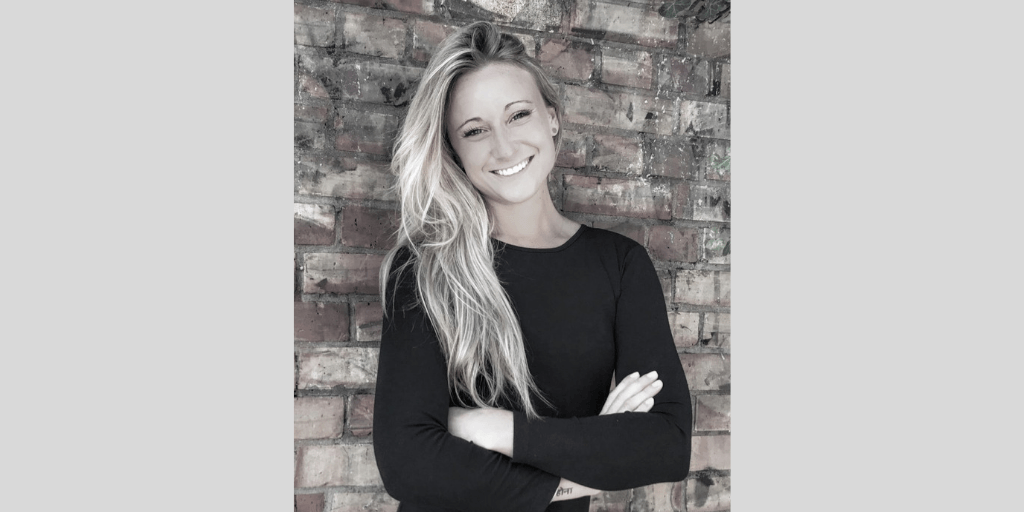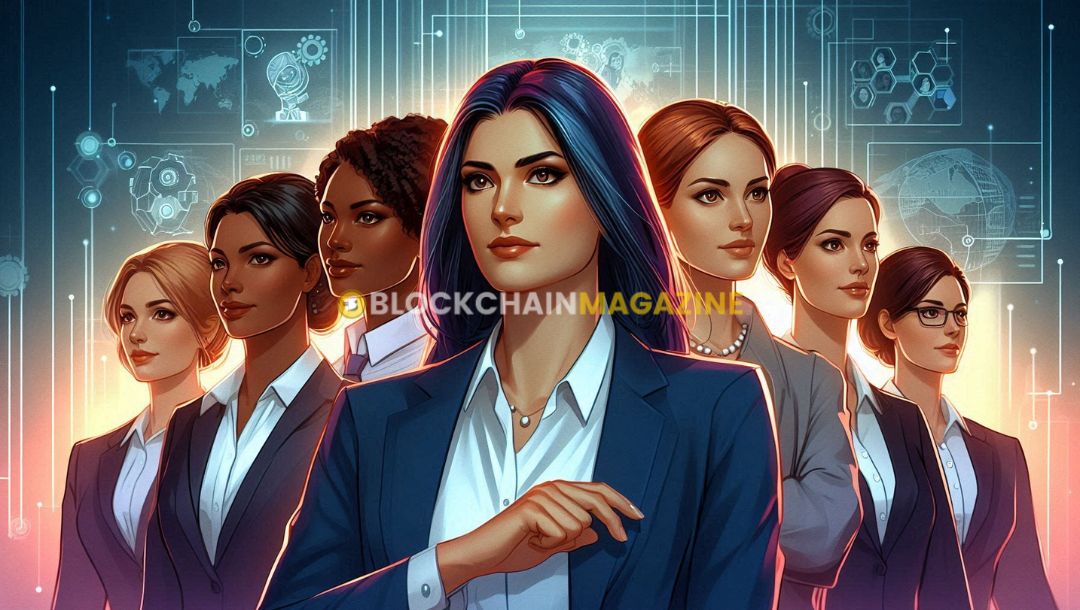Meet The Women In Blockchain: Brianna Lee Welsh
We had the pleasure of interviewing Brianna Lee Welsh. She is a serial entrepreneur in the artificial intelligence and blockchain sectors. Brianna is the Vice President at Sindicatum Blockchain Technologies for Asia. The company is aiming to increase global investment into renewables
Can you share with us the story of how you decided to pursue this career path? What lessons can others learn from your story?
I was a bit of an Animist as a kid. From as far back as I can remember, I’ve had a strong emotional affinity towards environmental protection. And as an adult, I’ve become rather obsessed with the potential of innovative technologies to solve wicked problems, like the one about the climate crisis.
Now that tools like blockchain and AI have advanced to the point where we can influence the shape of our future realistically, I’m committed to driving that energy into positive environmental behaviors. So, when the CEO of my company – an irreverent and vocal climate activist and successful financier – introduced his quirky project using blockchain for renewable energy, I knew immediately that this was the opportunity to marry my two passions.
Concerning the lessons, I’m generally a non-linear person and true to form, have taken a non-linear path to be where I am today. In fact, I consider my resume to be more of a catalogof my sufferings than a list of accolades. But as unconventional as my career has been, I’ve found a few guiding principles that have remained consistent throughout.
- Experimentation – I believe that I’m a product of intense trial and error, and my most magnificent, epic, failures have always led to some profound realization. The key is to use these learnings to fail better next time. And at the very least, the stories will keep you interesting!
- Curiosity – I have an insatiable desire to learn new things. I feel the key to anyone’s success is to remain a perpetual student of the world. Read voraciously, and remain curious.
Exposure – I deliberately place myself in environments for maximum exposure to new ideas, people and problems. Get out in the world, try new things, meet new people, and challenge your beliefs regularly. This keeps the wheels turning, and regularly challenges the status quo. The more diverse your exposure, the better you will be at handling complex problems.
Can you tell me about the most interesting projects you are working on now?
As a software infrastructure layer, blockchain can incentivize the adoption of renewables and clean technology, creating institutions architected to prioritize sustainable tech. I believe that the existing financial system has failed to support the energy transition, which is why I am focusing on leveraging the distributed ledger technology to draw in the capital for renewables through alternative financing.
The darling on my plate at the moment is a company that applies blockchain to the commodities side of renewable energy generation. The application operates similar to a trading platform, but the commercial use aims to stimulate investment into clean energy, specifically in emerging markets. The project, called Reneum(www.reneum.com) uses blockchain as a data management tool – a registry of “environmental attributes” from the producing of green energy – that issues asset-backed utility tokens.
It leverages blockchain’s traceability features to bring an unprecedented level of integrity to the market, helping assure corporate multinationals to purchase these commodities. Big picture, the platform aims to increase liquidity in a traditional paper market to help prospective renewable energy developers achieve bankability in markets where lenders typically shy away from
I am also exploring blockchain as a medium to democratize investment into green infrastructure assets through the tokenization of equity. The aim is to open up the arena to smaller ticket prices, broadening the scope to family offices, and accredited investors rather than remaining the exclusive domain of institutional investors.
This will leverage blockchain as a repository of sensitive data – colloquially known as the ‘data room’ in investing – as well as for ownership rights and trading contracts, with tokens being sold or traded through private and authorized exchanges.
None of us are able to achieve success without some help along the way. Is there a particular person who you are grateful for who helped get you to where you are? Can you share a story about that?
Landing my current field arose somewhat serendipitously through a personal connection, and I am eternally grateful to her. But the individual I must credit for even introducing me to the blockchain universe, is a dear friend, Benjamin Alexander. His influence forced me to prioritize perpetual learning, to read regularly, and to seek out stimulating information that challenged me to really think.
We have spent countless hours dissecting exponential technologies – both of us enthralled with biotech, infotech, and the ethical implications of a future that synthesizes them. He was, in fact, the person who first explained the concept of the blockchain, on a 13-hour drive into Burning Man a few years back. So, in absolutely every sense, I have extreme gratitude for his impact on my life.
What are the 5 things that most excite you about blockchain and crypto? Why?
- Obviously, I have a vested interest in the field, but I am completely geeking on blockchain’s disruption of the power sector. Both from the perspective of grid optimization in advanced economies and for its potential to boost electrification in emerging markets.
- Blockchain’s potential to bring transparency and trust to traditionally high-risk markets to stimulate investor activity in renewables is another biggie for me. Elevating investor’s confidence in market participants is crucial for driving climate finance, and blockchain offers an ideal solution. The ability of blockchain to nurture capital markets in developing regions will bring a whole new economy online in many places.
- The whole data privacy movement is another area of personal interest. I’m fascinated with the complete ineptitude regarding data protection demonstrated by policymakers thus far and am patiently awaiting a solution for ethical management of personal data.
- There have been whispers of a looming recession for a while now, and I’m interested to see how the Bitcoin market may be buoyed in a downturn. Given that cryptocurrencies were developed as a response to the lack of faith in financial systems, a recession theoretically would send crypto-assets booming.
- Very eager to watch as blockchain continues to dismantle the power held by the rent-seeking, monopolistic organizations around the world. Many of these organizations have held unjustified strongholds at the expense of consumers, and it would be great to see corporations forced to compete based on the quality of services rather than political clout.
What are the 5 things that worry you about blockchain and crypto? Why?
- The esoteric nature of the technology tends to leave it to the domain of the technocrats and anarchists. My concern is that we may wind up with a mortgage-backed securities scandal 2.0 if we’re not prudent. The nature of the capitalist system is a race to the bottom, and I believe we need checks and balances in place to protect us, from ourselves.
- Self-governing, meritocratic, Decentralized Autonomous Organizations have been heralded as the silver bullet for market inefficiencies and failed financial systems. In theory, crowd-sourced crypto-economic incentives have the potential to improve decision making, but game theory can still apply here. Participants who are being rewarded for how their individual contributions align with the outcome leaves room for opportunistic participants seeking to maximize their positions to gain control, just a thought on the nature of human psychology in a capitalist economy.
- Libra’s attempt to displace reserve currencies through yet another top-down, pyramid-shaped commercial structure. The idea that a global currency is being managed by the very company that has arguably caused (or perhaps, been instrumental in) the current state of social disarray we are in, makes me nervous. It appears more likely that Facebook is trying to play catch up with WeChat, which, has profoundly served as a platform facilitating government aims of censorship and interception protocols. And as Facebook is already a very well-oiled surveillance machine, I’m wary of the future where Facebook has even more control.
- Walmart’s proposed blockchain bears a lot of resemblances to Libra. Similar to Libra, my instinct is that the claims of “financial inclusions” are mostly for social posturing rather than as a key commercial objective. And the pre-approved biometric data, while adding a layer of convenience for credit-related activities, has the potential for very disturbing outcomes.
- Blockchain has been promoted as a panacea to all the world’s ills. Slapping a “.io” to the end of a name doesn’t magically improve the quality of a product, and without a strong underlying business, I remain skeptical about a lot of blockchain companies. The reality is, not all problems need blockchain, and blockchain cannot solve all problems.
How have you used your success to bring goodness to the world? Can you share a story?
I am currently piloting a “Technologies for Good” media campaign intended to feed into a United Nations Development Programme showcasing brazen entrepreneurs in the climate and environment space. The aim is to profile individuals on a local level that are using innovative technologies or processes to positively influence their community’s environmental impact.
The stories of these inspiring individuals will be published on a database focused exclusively on emerging markets, serving as a connection platform and scalable blueprint for other communities facing similar developmental challenges.
What 3 things would you advise someone who wanted to emulate your career? Can you share an example for each idea?
- Action – If you’re not sure what you want in life, just do something. Make a move, reduce the friction and try anything. Do this enough, and you will almost accidentally stumble upon something that sticks, that you find yourself excited by.
- Connection – Force yourself to meet people whose jobs you think you want. LinkedIn is a fabulous tool for connecting, and most people are willing to offer advice to someone willing to learn. Take people for coffee, ask them what their job really looks like, and what they enjoy or dislike in their field. Not only will it help you narrow your target on a specific position or field, but you’ll garner valuable industry or company insights that will help if you pursue that career.
- Self-study – If you feel intrigued by a product, service, industry, company, you name it – take the initiative to learn more about it. Instilling proactive learning as a habit will pay off in compound interest over time.
What is your
The one that has stuck with me persistently since I first heard it years ago, is from Richard Branson, and it goes: “if somebody offers you an amazing opportunity but you’re not sure you can do it, say yes – then learn how to do it later”.
I love this quote because of the personal agency it inspires and the growth-mindset that it encourages. So many times in life, I have experienced a fear of inadequacy; the fear of failing or of not living up to others’ standards that have limited what I’ve put myself forward for. I think this sense of inadequacy is a common experience, particularly amongst Millennials who’ve grown up in the “Influencer” culture of self-curated lives.
But this quote implies that everything is achievable if you prioritize learning, which is the easiest antidote for that paralyzing self-doubt we’re all familiar with. To continue progressing, it’s crucial that we break through our self-imposed glass ceilings and just take a leap.
Some of the biggest names in Business, VC funding, Sports, and Entertainment read this column. Is there a person in the world whom you would love to have a private breakfast or lunch with, and why?
Naval Ravikant, hands down. I really enjoy people that can exercise cognitive dissonance in a constructive way; people who can hold conflicting perspectives simultaneously without deteriorating into a state of hysteria. And in spite of his objective success, he seems to remain grounded, embodying a sense of equanimity that I admire. He just generally seems like a cool dude.
How can our readers follow you on social media?
- Twitter: https://twitter.com/briannaleewelsh
- LinkedIn: https://www.linkedin.com/in/briannawelsh/
Stay informed with daily updates from Blockchain Magazine on Google News. Click here to follow us and mark as favorite: [Blockchain Magazine on Google News].
Get Blockchain Insights In Inbox
Stay ahead of the curve with expert analysis and market updates.
latest from tech
Disclaimer: Any post shared by a third-party agency are sponsored and Blockchain Magazine has no views on any such posts. The views and opinions expressed in this post are those of the clients and do not necessarily reflect the official policy or position of Blockchain Magazine. The information provided in this post is for informational purposes only and should not be considered as financial, investment, or professional advice. Blockchain Magazine does not endorse or promote any specific products, services, or companies mentioned in this posts. Readers are encouraged to conduct their own research and consult with a qualified professional before making any financial decisions. The featured image used is just a creative depiction of the title and it does not intend to hurt sentiments of any person or institution. If it hurts anyone sentiments, please do not hesitate to reach out to Blockchain Magazine.

 Bitcoin
Bitcoin  Ethereum
Ethereum  XRP
XRP  Tether
Tether  Solana
Solana  Dogecoin
Dogecoin  USDC
USDC  Cardano
Cardano  Lido Staked Ether
Lido Staked Ether  TRON
TRON  Chainlink
Chainlink  Avalanche
Avalanche  Wrapped stETH
Wrapped stETH  Stellar
Stellar  Wrapped Bitcoin
Wrapped Bitcoin  Sui
Sui  Hedera
Hedera  Toncoin
Toncoin  Shiba Inu
Shiba Inu  WETH
WETH  Polkadot
Polkadot  Parkcoin
Parkcoin  LEO Token
LEO Token  Bitget Token
Bitget Token  Litecoin
Litecoin  Bitcoin Cash
Bitcoin Cash  Uniswap
Uniswap  Hyperliquid
Hyperliquid  Official Trump
Official Trump  Wrapped eETH
Wrapped eETH  Pepe
Pepe  USDS
USDS  NEAR Protocol
NEAR Protocol  Ethena USDe
Ethena USDe  Aave
Aave  Aptos
Aptos  Internet Computer
Internet Computer  Ondo
Ondo  Ethereum Classic
Ethereum Classic  Monero
Monero  POL (ex-MATIC)
POL (ex-MATIC)  OKB
OKB  Cronos
Cronos  Dai
Dai  Mantle
Mantle  Algorand
Algorand  Render
Render  MANTRA
MANTRA 




